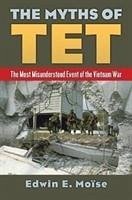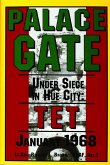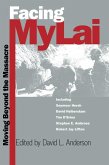Late in 1967, American officials and military officers pushed an optimistic view of the Vietnam War. Military Assistance Command, Vietnam (MACV) said that the war was being won, and that Communist strength in South Vietnam was declining. Then came the Tet Offensive of 1968. In its broadest and simplest outline, the conventional wisdom about the offensive--that it was a military defeat for the Communists but a political victory for them, because it undermined support for the war in the United States--is correct. But much that has been written about the Tet Offensive has been misleading. Edwin Moïse shows that the Communist campaign shocked the American public not because the American media exaggerated its success, but because it was a bigger campaign--larger in scale, much longer in duration, and resulting in more American casualties--than most authors have acknowledged. MACV, led by General William Westmoreland, issued regular estimates of enemy strength in South Vietnam. During 1967, intelligence officers at MACV were increasingly required to issue low estimates to show that the war was being won. Their underestimation of enemy strength was most extreme in January 1968, just before the Tet Offensive. The weak Communist force depicted in MACV estimates would not have been capable of sustaining heavy combat month after month like they did in 1968. Moïse also explores the errors of the Communists, using Vietnamese sources. The first wave of Communist attacks, at the end of January 1968, showed gross failures of coordination. Communist policy throughout 1968 and into 1969 was wildly overoptimistic, setting impossible goals for their forces. While acknowledging the journalists and historians who have correctly reported various parts of the story, Moïse points out widespread misunderstandings in regard to the strength of Communist forces in Vietnam, the disputes among American intelligence agencies over estimates of enemy strength, the actual pattern of combat in 1968, the effects of Tet on American policy, and the American media's coverage of all these issues.
Hinweis: Dieser Artikel kann nur an eine deutsche Lieferadresse ausgeliefert werden.
Hinweis: Dieser Artikel kann nur an eine deutsche Lieferadresse ausgeliefert werden.








